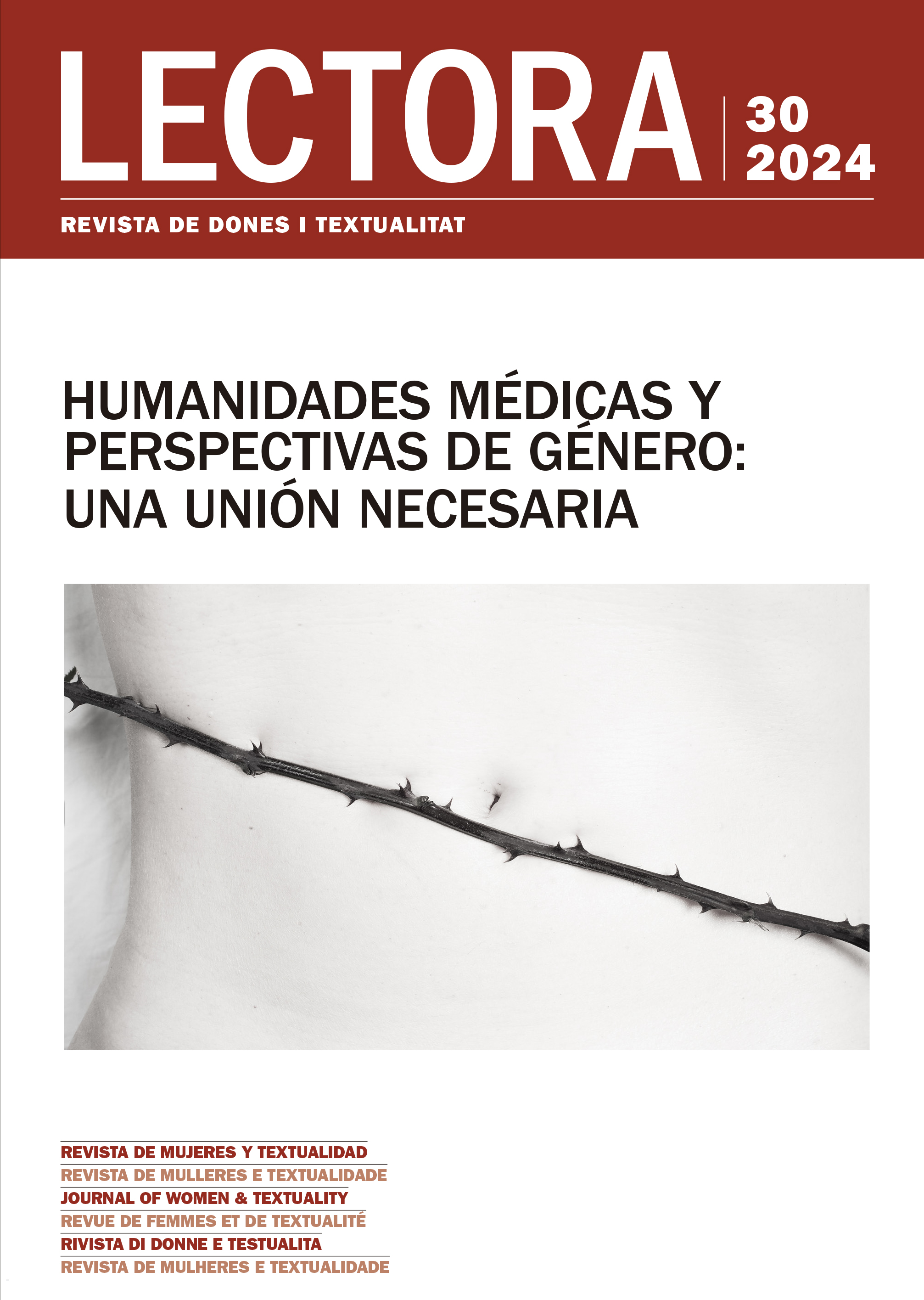Misoginia interiorizada: abejas reinas posmodernas en la reescritura de seis cuentos de hadas de Belén Gaudes, Lucía Etxebarria y Ángela Vallvey
DOI:
https://doi.org/10.1344/Lectora2024.30.18Keywords:
fairy tales, postmodern rewritings, Snow White, Cinderella, misogynist womenAbstract
This paper analyzes the figure of female misogynists in six rewritings of Snow White and Cinderella written between 2013 and 2018. Thus, we divide our contribution into four parts. Firstly, we will briefly approach traditional fairy tales and their postmodern rewritings. Secondly, we link misogynists’ harmful acts to the coercive politics of patriarchy. Thirdly, we provide the analysis. And, lastly, we offer our conclusions. This study shows that powerful misogynist women are fighting against the weaker ones to preserve the risible power that men granted them. Throughout the paper, the main characteristics of these aggressors are defined according to the study by Berit Brogaard, where the Danish philosopher explores how feelings of hatred and contempt are related to the cultural myths about femininity.
Downloads
Published
How to Cite
Issue
Section
License
Copyright (c) 2024 Gaetano Antonio Vigna

This work is licensed under a Creative Commons Attribution-NonCommercial-NoDerivatives 4.0 International License.
The Author retains ownership of the copyright in this article and grants Lectora: revista de dones i textualitat the rights to print publication of the Article. The work will be available under a Creative Commons Attribution-Noncommercial-No Derivative Works license, by which the article must be credited to the Author and the Journal be credited as first place of publication.
The Author is free to enter in seperate, additional contractual agreements for the non-exclusive distribution of the work as published in this journal (such as institutional repositories or a book), as long as the original publication in Lectora is credited.
The Author is encouraged to post the work online (eg in institutional or thematic repositories, or in their website), as it can lead to productive exchanges as well as to a greater citation of the published work (see The Effect of Open Access).




